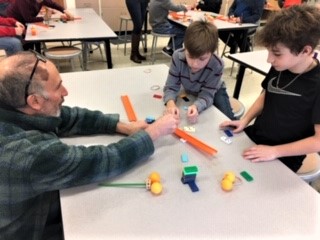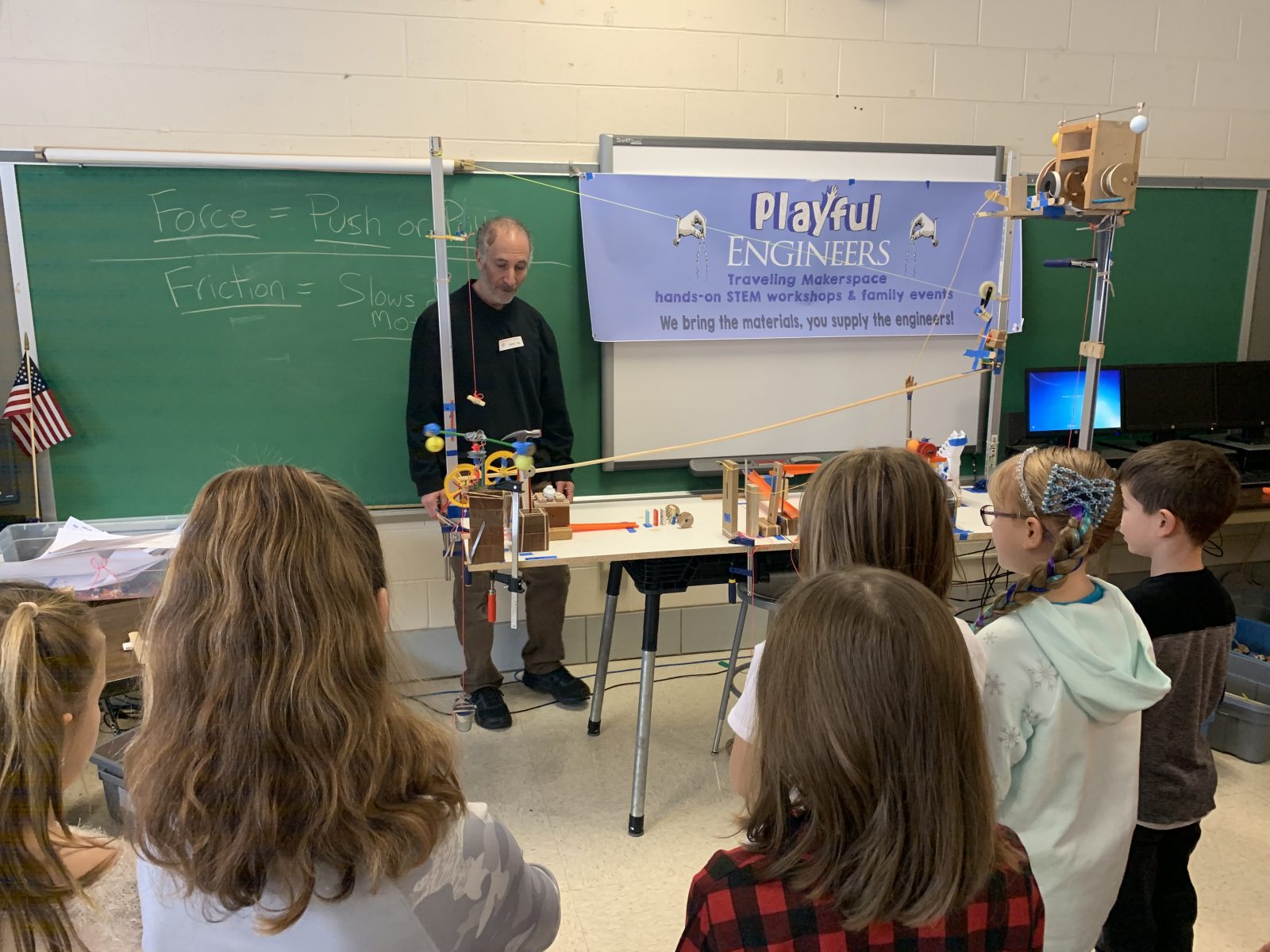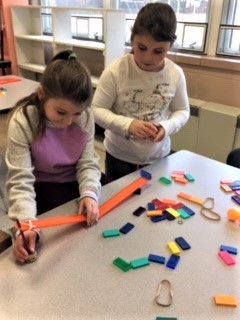
Jay Mankita helps Southampton Road students Brody Patterson and Carter Roselli build a machine. (Photo submitted)
WESTFIELD – Southampton Road Elementary School students are spending a few weeks learning how to be playful engineers.
Jay Mankita, of Playful Engineers in Amherst, is bringing in tracks, balls, gizmos and gadgets to have students build complicated Rube Goldberg machines that do simple things, and learn about forces in motion and basics in engineering at the same time.
Assistant Principal Jennifer Roux said Mankita will be at the school for a mini-residency with second, third, and fourth grades for three days a week for three weeks this year. Each class will meet with Mankita three times for 80 minutes for each session.
During their time they will investigate ways to solve real world problems using an engineering design process, Roux said. The mini-residency was made possible through a Massachusetts Cultural Council STARS residency grant.
Mankita, who has been working with children as an award-winning children’s performance artist for 30 years, said he developed this program three and a half years ago to incorporate his passion for engineering and making things move.
On his website, playfulengineers.com, Mankita said hands-on activities are becoming more universally recognized as valuable for students’ hands and bodies. “We need children to become confident at doing things, not just watching things,” he said.
He brings with him all the parts needed to build the playful machines, many of which he’s made himself in his woodworking shop, such as wooden dominos, tracks, and parts to make bridges. He also brings in balls, tinker toys, hot wheels, and other familiar toys.
“The students, and teachers, are excited about this opportunity to delve deeper into engineering and science,” Roux said. She said Mankita told their budding engineers, practice makes progress, and failure is a good thing because it allows us to grow and improve as engineers and scientists.
“These types of STEM projects provide opportunities for every student to be successful. Every student is engaged,” added third grade teacher Kelly Paradis.









